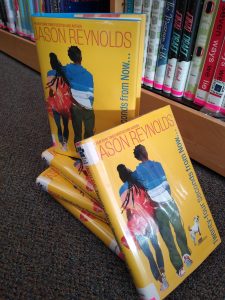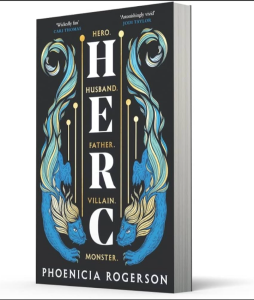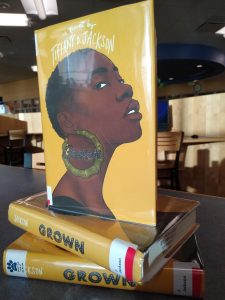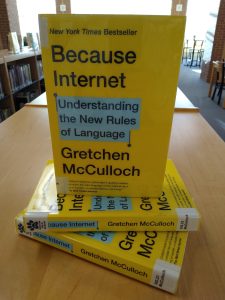24 Seconds from Now… by: Jason Reynolds

Twenty-four months ago: Neon gets chased by a dog all around a church’s parking lot. Something he would love to forget if it weren’t for the dog’s owner: Aria. Twenty-four weeks ago: Neon’s dad insists on talking to him about tenderness and intimacy. Neon and Aria are in love, and they’re talking about taking the next big step. Twenty-four days ago: Neon’s mom finds her bra in his room. With those complicated hook thingies, he wanted to practice, with the big day only a month away. Twenty-four minutes ago: Neon leaves his shift at work, making sure to bring some chicken tenders for Aria- her favorite. Now Neon is locked in Aria’s bathroom, completely freaking out because twenty-four seconds from now he and Aria are about to do ‘it’.
This isn’t a story about love, but of love. Of the connections weaved through our relationships. Of caring deeply enough about another to entwine with them.
The style is interesting. Told in backward increments of 24- seconds, minutes, hours, days, and months- the reader knows the after before the backstory. This leads to foreshadowing of events that for the characters already happened but for the reader’s future; understanding of such events enhances the meaning in hindsight.
The diction choice led to greater understanding of Neon. It felt realistic for his character. It also made the points he was trying to make more concise and easier to picture.
I liked this book; it makes for a quick simple read. I would recommend it.
Herc by: Phoenicia Rogerson

Most people know of the Greek mythological hero Heracules (Hercules in Roman tellings). Renowned for his twelve labors, his name has become synonymous with feats of strength. Thus, it would make sense to have it be his story. Yet told by the voices of others, the focus shifts to the characters in the shadows. Unsilenced voices such as Amphitryon, the mortal stepfather; Hylas, the first (more than) friend; Megara, the first wife; Eurystheus, the cousin who oversaw the labors; allow for a more complete picture of who Herc is by telling their stories. “Told with humour and heart, Herc gives voice to the silenced characters, in this feminist, queer (and sometimes shocking) retelling of classic Hercules myth.”
I absolutely adored this book (though I might be a bit basis as I both love anything Greek mythology and I recommended this book for the book club).
This book is perfect for those who know nothing about mythology. It is easy to follow and contains a helpful character guide to keep track of the characters. But it is also highly entertaining for the mythology experts with witty comments that will cause them to laugh due to their knowledge yet will still make sense to those novices. You learn more about the myth no matter your mastery.
The style is unique in the way that it is written in a very casual modern tone. Most retellings- such as ‘Song of Achilles’ or ‘A Thousand Ships’- are told in eloquently beautiful diction. While I personally love this style, they can also make the drastically different stories feel the same. This novel breaks this mold in a delightful way. Not only is it spoken by all the characters but the titled one, but each voice is distinctive. My favorite has to be the Icarus chapter, where the form is a poem. Other forms include lists, letters, and wedding invitations.
I thought the humor was funny and helped with the relaxed tone of the majority of the book. Still, the book dived into deeper ideas throughout the novel. Perspective places a critical part in the story and how people’s views can change their opinion- an idea that has always fascinated me. The ending was very satisfying, a foreshadowing of future events but with a feeling of contentment at where it ended.
I highly recommend this book even if this isn’t really your forte.

Grown by: Tiffany D. Jackson
Enchanted Jones dreams of being a famous singer, so when legendary R&B artist Korey Fields takes notice, she can’t believe her luck. When a relationship sparks between them, she discovers the love she always craved. But beneath the charming personality is a dark controlling side. So, when Enchanted is found with a dead Korey Fields and no memory of the night before, the murder seems to have been done by her hand.
I loved this story, while simultaneously hating the events that preceded highlighting the subject of abusive relationships with older people. It is a subject that hits hard and was beautifully depicted. This novel sparks conservation about this need to be talked about subject.
This story is told in the author’s characteristic of splitting the timeline into ‘now’ and ‘before’. This leads to foreshadowing that hooks the reader into wanting to find out what actually happened, especially since the narrator is unreliable. You question what is true, even Enchanted herself.
I love the narrator’s use of extended metaphors. In this piece of literature, she uses the central theme of the ocean to shape the mentality of Enchanted. It adds a personal touch to the narration due to Enchanted’s significant past with the medium and the fact she is also a swimmer. So, the metaphor crosses with the physical world.
This use of metaphor often extends to the chapter titles. It hints to the subject at hand, but the reader has to read the chapter to interpret the true meaning of the title. And once understanding is reached, the chapter often hits a different beat.
The characters and situation are realistically believable (as heartbreaking as that seems due to the subject matter). The reader will want to shout at Enchanted for her naivety yet in your heart know this is what truly happens. Grounded in fact and inspired by true cases, it gives the nuance that is needed to portray this content. The plot twist at the end was a real shocker.
I highly recommend this book (and any other by this author). But be aware of the darker topic detailed within.

Because Internet: Understanding the New Rules of Language by: Gretchen McCulloch
Language- how we use it and speak it- is constantly changing; the rise of the internet has made it change exponentially. Yet the widely available, unedited textboxes of conservations have led to an easier to gather view of this evolvement and the impact of society as a whole (way faster than traveling to each region with a tape recorder). “Even the most absurd-looking slang has genuine patterns behind it. Internet linguist Gretchen McCulloch explores the deep forces that shape human language and influence the way we communicate with one another. She explains how your first social internet experience influences whether you prefer “LOL” or “lol,” why ~sparkly tildes~ succeeded where centuries of proposals for irony punctuation had failed, what emoji have in common with physical gestures, and how the artfully disarrayed language of animal memes like lolcats and doggo made them more likely to spread.”
I am conflicted on my standpoint with this nonfiction book. While I often found the book to be interesting and at times humorous, I still found myself bored or even falling asleep. This might be due to the overhaul of data given within each page. It was fact after fact, statistic after statistic; and while some were fascinating, the majority had no interest for me. It took me until the chapter on emojis (over halfway through the book) for the book to grab my attention.
This could also be because this isn’t the type of nonfiction I like. I gear towards the historical or memoir type. Thus, my preference basis is another obstacle when deciding my opinion.
However, the parts that I did enjoy, I enjoyed a lot. It was interesting how the topics mentioned in the book were reflected in daily life. I couldn’t help but listen to every conversation, evaluate every text, and study every slang I heard. If you like data-driven stories, then I do recommend this book.
